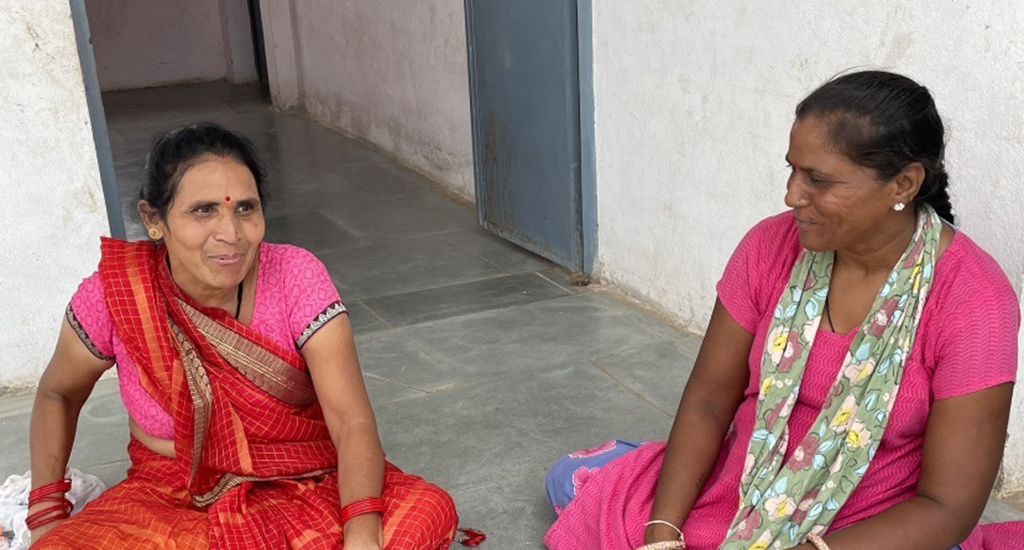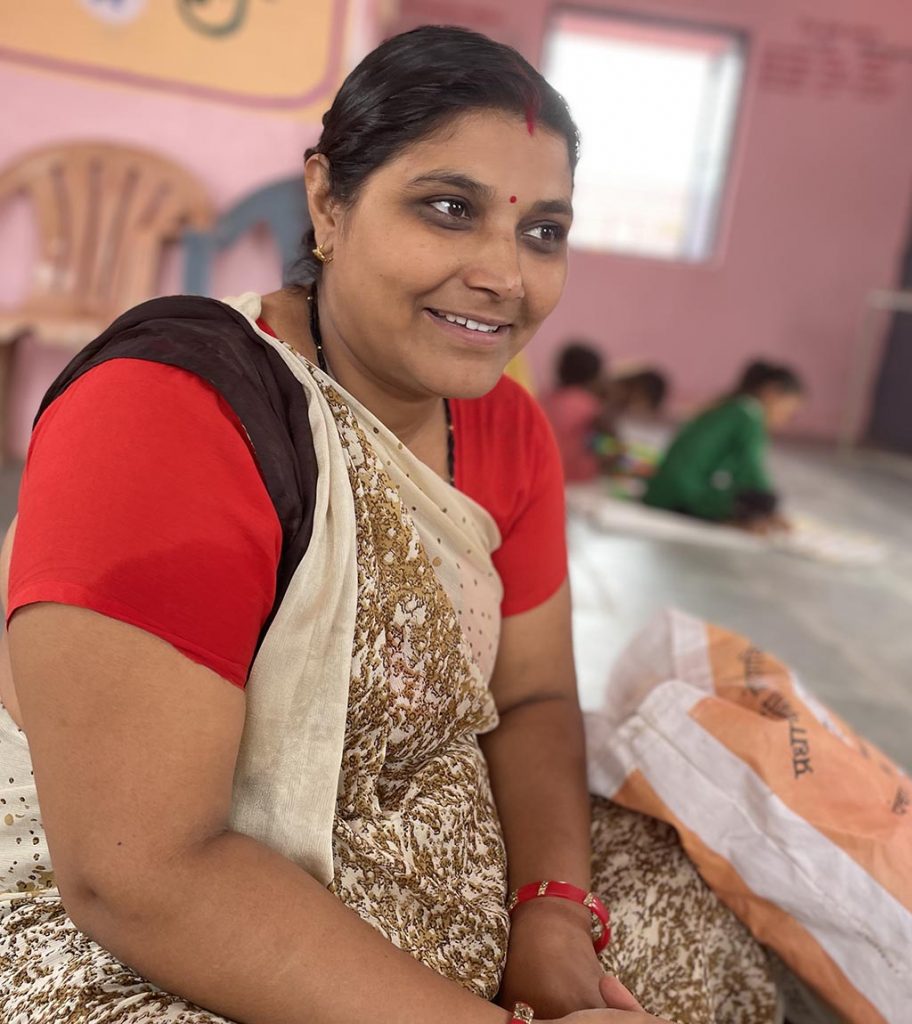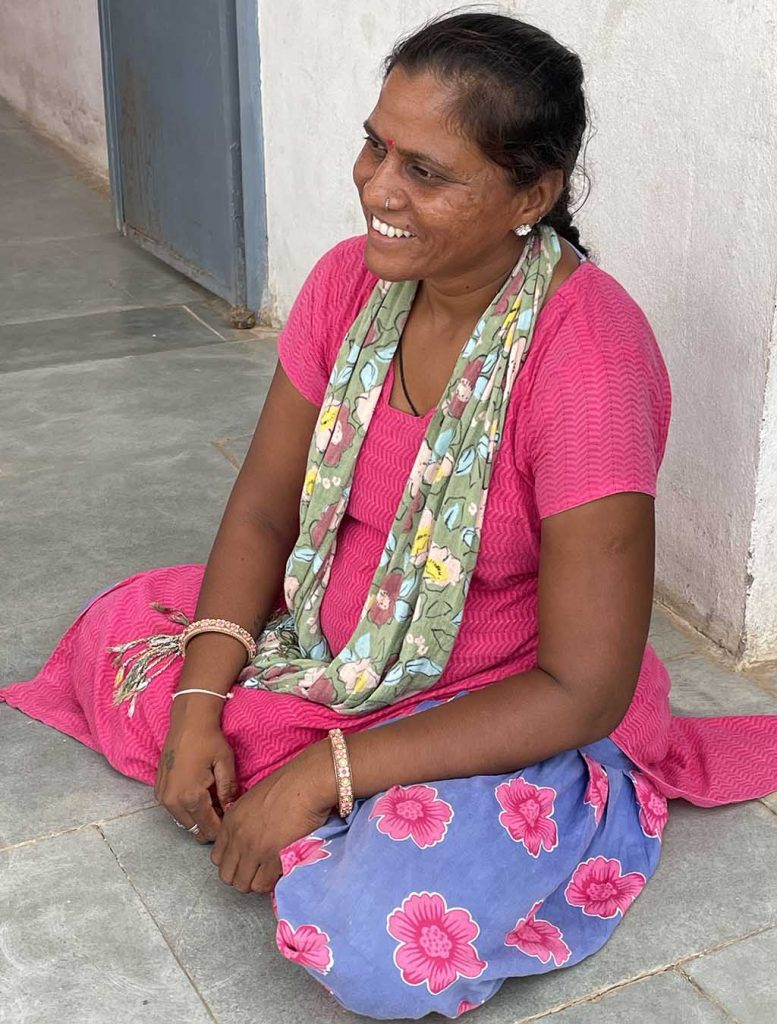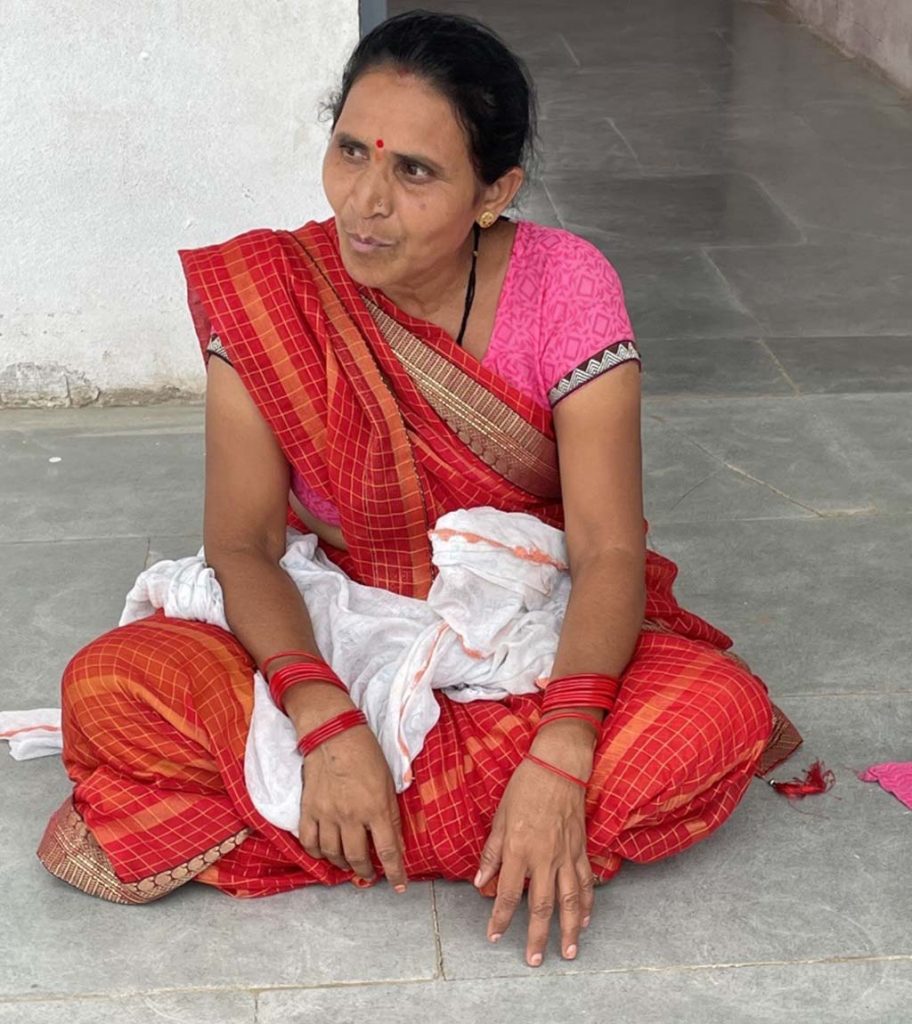
Physically challenged women ensure mother-child health
These resilient frontline health workers ensure nourishment and development of young women and children in their village, despite their own physical disabilities and challenges.

These resilient frontline health workers ensure nourishment and development of young women and children in their village, despite their own physical disabilities and challenges.
In my recent field visit to Madhya Pradesh’s Barwani district, my colleagues at The Antara Foundation introduced me to three of the most resilient women.
One of them works as an accredited social health activist, popularly known as the village ASHA (Accredited Social Health Activist) and two are anganwadi workers (AWWs) who are primarily in charge of nutrition and the well-being of children under five.
All three had two things in common – a childhood brush with polio and the unstoppable courage to defy the odds.
Life had dealt each of them a difficult hand before their second birthdays.
Before the polio vaccine became widely available in India, all three women became victims of this debilitating disease. Each of them remembers getting a high fever, followed by paralysis, severe for one of them, milder, yet crippling for the other two.

When I heard what daunting adversities these three women had surmounted and saw the courage and drive with which they were helping other women and children in their communities despite their own struggles, I felt that I must share their inspiring stories.
Although each of these workers has a defined role, together they share a common goal to look after the well-being of the community they serve.
Rukmani Yadav has been an ASHA since 2006 in the village of Borlay in the Barwani district. Born in a poor family where her father was a daily wage labourer, she was the oldest of five daughters. As is common in most parts of rural India, parents keep having children till they have a male baby. This is to satisfy their yearning for a male heir who will look after them in their old age.
It was the same with Rukmani’s parents. After the birth of five daughters they had a son, but unfortunately, the son died by suicide in the prime of his youth.
Rukmani had an ambition to study and become a judge or at least a lawyer.
Despite the stigma of polio attached to her, Rukmani had started to provide for her family from an early age. She was married to a man who ran a flour mill for a living. However, Rukmani didn’t discard her books and completed Class XII privately after her son was born.

Even now she is relentlessly pursuing a B.A. in social sciences.
Rukmani has an excellent work track record and has gained the trust of her entire village. She became the primary breadwinner of her family. Even though she cannot go walking door to door, her husband takes her for community visits on his motorbike.
Her village boasts of 100% institutional deliveries and she makes sure every pregnant woman is registered as early as possible and receives the essential ante-natal check-ups and care.
Rukmani is a fast learner and, although she has no formal training in nursing, she can do an abdominal exam and has a keen eye to spot danger signs of high risk. She is confident that if the need arises, she can conduct a safe delivery in case the pregnant woman cannot make it to a hospital.
We then went to meet the two anganwadi workers in Bagud village. Santoshi Solanki has been an AWW since 2001. Polio hit her hard when she was just a toddler. She needs to use a crutch as well as a stick to get around.
In the monsoon the village roads can be challenging even for an Olympic athlete. Yet Santoshi navigates them with a smile. When necessary, she seeks help from her three brothers, who give her a ride on their motorcycles to get to the anganwadi and to her home visits.
The anganwadi helper too provides Santoshi support in conducting the activities for the children at the anganwadi.
Santoshi remains single and devotes herself entirely to her work. She thinks of the anganwadi children as her own. Her work record is exemplary.
Radha Khede is the third woman that we met. Donned in a bright red saree, Radha sported a contagious smile. She has been an anganwadi worker since 1990.
Her parents were labourers, farming on the side, growing corn, a staple in this region. Though she would have loved to study, she could study only up to Class VIII. She is married and has two children. Her 26-year-old daughter is completing her B.Ed.

Radha conscientiously makes sure every child in her village is weighed to check for malnourishment. She convinces the family to go to the Neonatal Rehabilitation Centre (NRC) if their child’s height-weight ratio places them in the severely malnourished category.
She counsels each pregnant woman and patiently helps them with their problems. She is proud to have become a friend and confidante to every woman in her village.
At The Antara Foundations (TAF), we regularly empower the ASHAs and AWWs, regarded as frontline health workers (FLWs). A key part of the government workforce, the FLWs play a crucial role in reducing maternal and infant health morbidity and mortality by providing critical services to pregnant mothers and infants.
These services include regular check-ups, access to medications and vaccines, advice on family planning, nutrition and healthcare.
Against all odds, these three unsung heroes and agents of social change have faced their own misfortunes with courage, and strive every day to bring good health and smiles to mothers and children in their villages.
As Rukmani Yadav rightly says, “Kisi ka charitra chapp jata he, kiskia chipp jata he,” which translates as “Some people’s biographies appear in print, some people’s biographies just disappear.”
But they do believe in their work and the impact of their work and soldier on.
The lead image shows anganwadi workers Radha Khede and Santoshi Solanki, who strive hard to ensure better health their villagers despite their limitations in mobility (Photo courtesy The Antara Foundation)
Madhura Nirkhe, a software engineer with a doctorate, is a Technical Advisor with The Antara Foundation (TAF) in rural Madhya Pradesh.